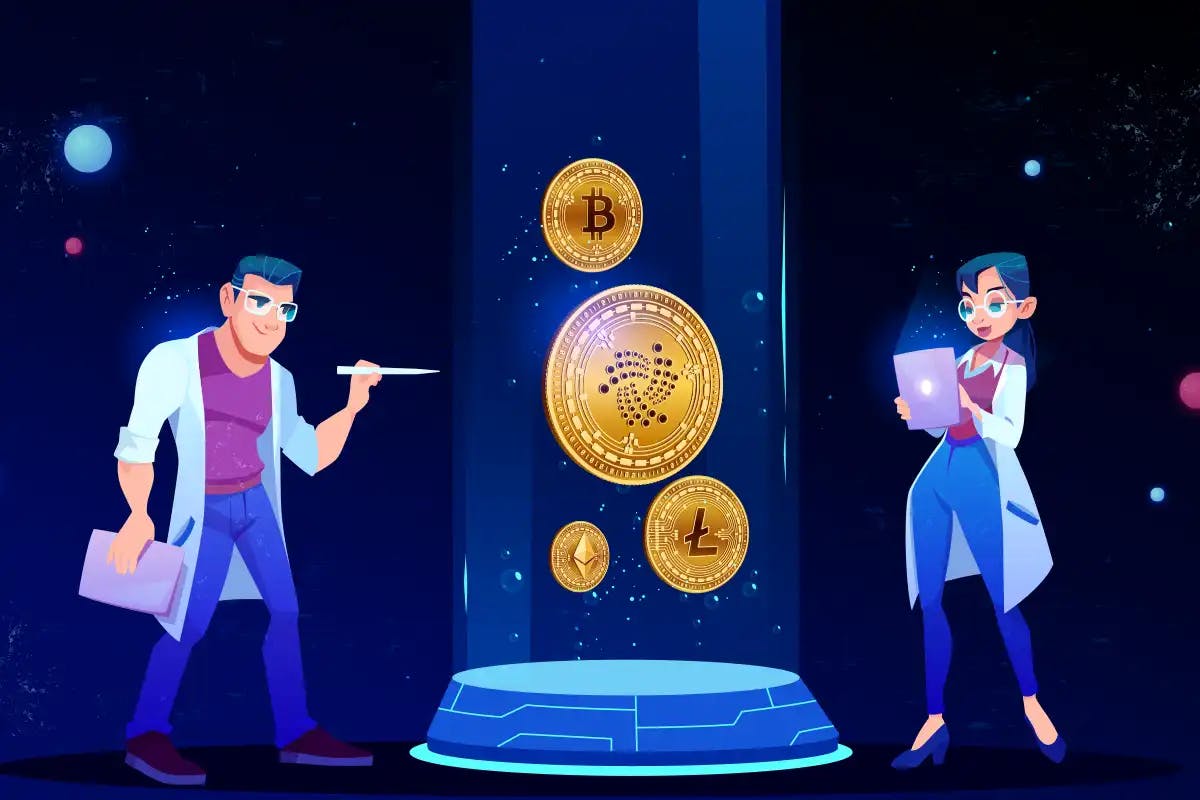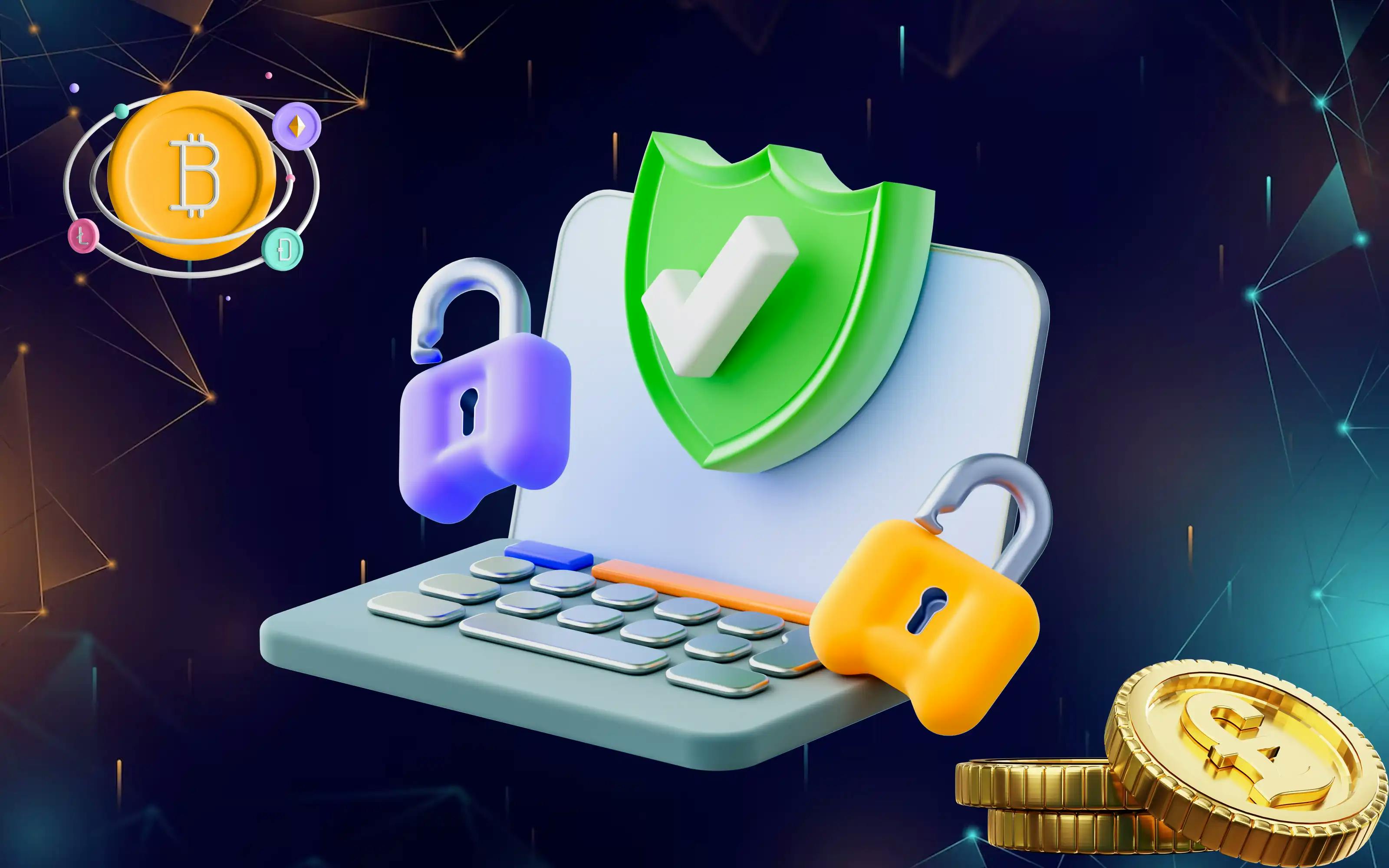
What is Tokenomics 2.0? Digital Currency Innovation in Blockchain Ecosystem
The behaviors and characterization of cryptographic tokens inside a digital ecosystem are what Tokenomics, a combination of the words “token” and “economics,” explores. Different assets, usage, or privileges can be assigned to these tokens in a virtual world. It encompasses various aspects, such as the creation, distribution, and regulation of tokens.
The Evolution of Smart Contracts
Agreements that are self-executing and have their terms written into code are known as smart contracts. Trustless transactions and automation within blockchain networks are possible because of them. Nick Szabo introduced this concept in the 1990s and it has since undergone significant advancements.
In this blog post, Tokenomics 2.0 is explored, and the need to integrate advanced smart contracts is underscored in developing the digital economy. The present state of Tokenomics is explored, as what it faces, and how advanced smart contracts are going to revolutionise the future for it. Concepts like real-world implementations, privacy, security, interoperability, and what the future holds for Tokenomics 2.0 will also be explored in this blog.
The Current State of Tokenomics
What Is Tokenomics?
Better known as token economics, Tokenomics (merged from “token” and “economics,”) is an important concept connected with the economic properties of agent-driven systems. Such systems are using cryptographic tokens that are developed and managed on blockchain-based distributed ledgers. Tokenomics also refers to the economic aspects of a cryptocurrency, including its issuance, supply, and functionality, that make it attractive to investors.
Tokenomics is a comprehensive process that covers various stages, including token creation, distribution, governance, and utility design. These stages significantly influence the value, adoption, and overall viability of the token ecosystem.
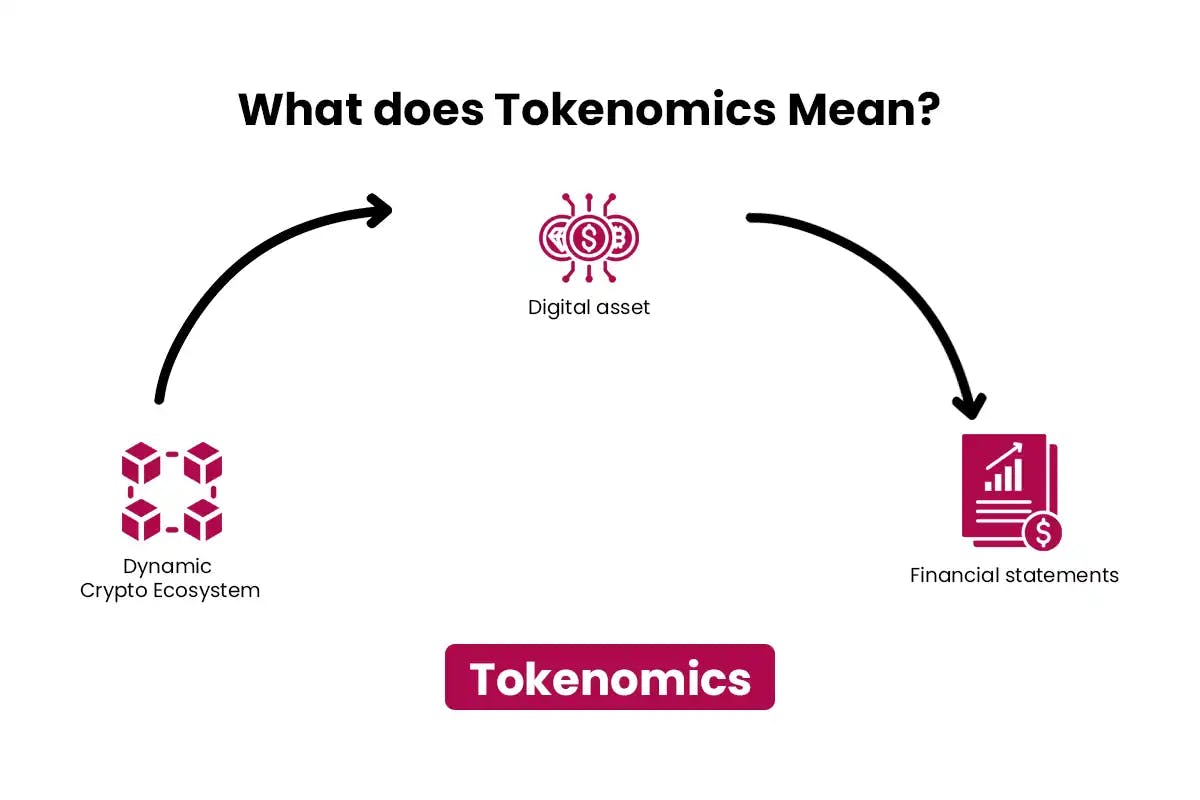
What is a Smart Contract?
On a blockchain, a smart contract is a computer-programmed agreement that can run on its own. The contract removes the need for middlemen such as legal authorities, banks, and notaries. It operates independently to enforce and execute the terms and conditions of an agreement. Trustworthy and tamper-proof, smart contracts are designed to be executed deterministically and cannot be modified by any involved party after being deployed.
Smart contracts operate by translating the rules and terms of an agreement, into lines of code. When specific predetermined conditions are fulfilled the contract executes automatically. Let’s take a look at how a contract functions:
- Creation
An individual or developer writes the code for the contract defining its terms, conditions, and logic. This code is typically written in programming languages such as Solidity (for Ethereum) or Rust (for Polkadot). - Deployment
The code for the contract is deployed onto a network. Upon deployment, it receives an address on the blockchain. Its rules become fixed. - Triggering Events
The execution of the contract is triggered by events or conditions specified in the code. These events can also be internal or external. - Automatic Execution
Once the predetermined conditions are met the smart contract carries out its predefined actions automatically. These actions may involve transferring tokens, updating records, or interacting with contracts. - Immutable and Transparent
After being deployed both the code and execution history of a contract cannot be. Remain transparent. All participants on the blockchain can verify how the contract operates, which enhances trust and security.
Characteristics of Smart Contract
Smart contracts possess characteristics that make them incredibly valuable, in the field of tokenomics and blockchain ecosystems;
- Autonomy
Smart contracts, powered by Blockchain Technology, can operate independently eliminating the need for intervention. This greatly reduces the risk of manipulation or interference from parties. - Trustlessness
Unlike agreements, participants in a decentralized smart contract do not need to trust each other personally. Instead, they place their trust in the code and the underlying blockchain network to execute the contract exactly as programmed. - Immutability
Once a cryptographic smart contract is deployed it becomes unchangeable and immutable. The code and execution history of the contract remain fixed ensuring transparency and strengthening security measures. - Self-Execution
Smart contracts are designed to be self-executing and self-enforcing. When predetermined conditions are met the blockchain-based contract automatically carries out its predefined actions without requiring intermediaries or manual interventions. - Tamper proof
Smart contracts, powered by Blockchain Technology, are highly resistant to modification or tampering due to their design. This guarantees that both their code and execution remain intact preserving the integrity of all terms. - Transparency
Every transaction and action performed by a contract is recorded on the blockchain network for all participants to see. This transparency fosters trust among users by providing visibility into every aspect of the contract’s operations. - Security
While not entirely impervious to bugs or vulnerabilities smart contracts prioritize security through practices such as code audits and formal verification processes. These measures help minimize risks associated with flaws.
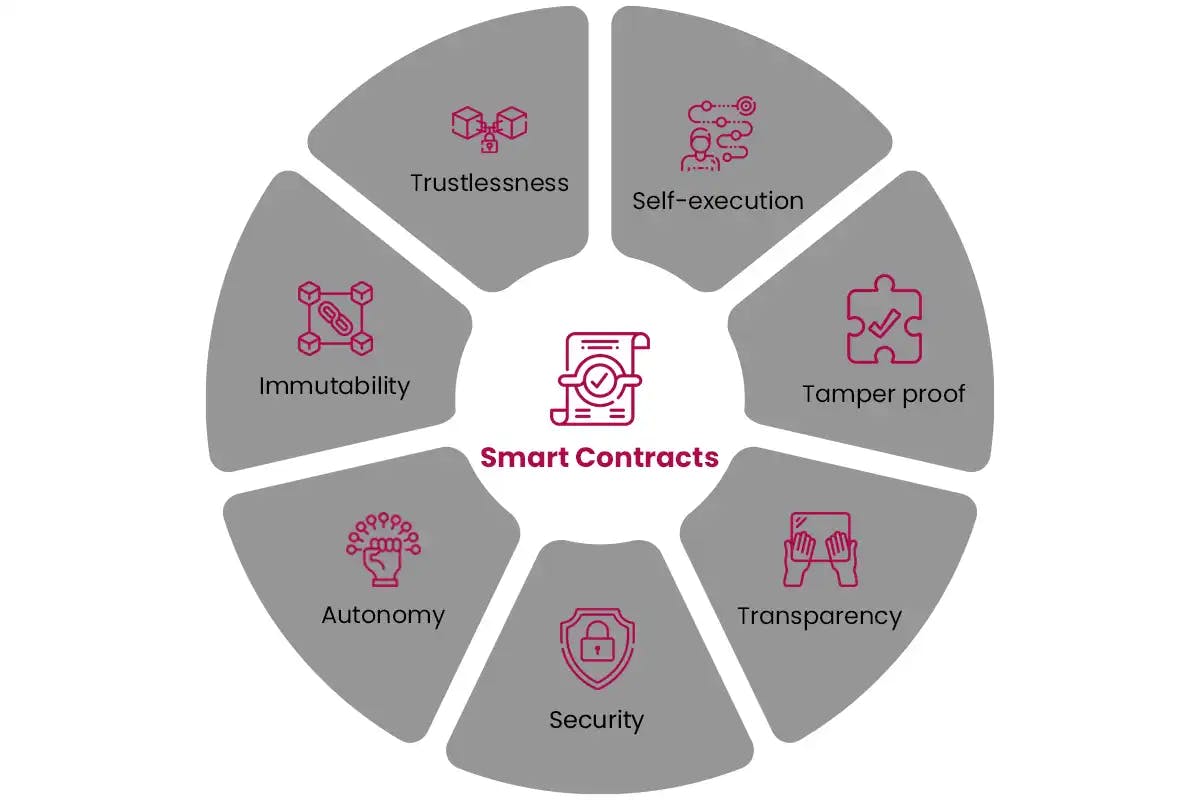
Tokenomics 2.0: Advancements in Smart Contracts
As the field of technology progresses the potential of contracts also advances. Tokenomics 2.0 signifies an era of smart contracts that surpass simple automation. These advanced smart contracts are known for their improved capabilities, flexibility, and integration opportunities which open up the scope of applications, within the token economy.
Features of Advanced Smart Contracts
- Logical
Sophisticated smart contracts possess the ability to execute logic-accommodating conditions and decision-making procedures. They can handle a range of inputs and outputs making them ideal, for advanced use cases. - Real-World Data
Integration with real-world data sources is a characteristic of these contracts. Through oracles, they can interact with events and conditions allowing them to stay up to date. This capability is particularly important for applications like finance (DeFi) platforms that require information. - Compatible
Advanced smart contracts are designed to function across blockchain networks offering cross-chain compatibility. This interoperability expands their scope. Facilitates chain asset transfers, decentralized applications (DApps), and multi-chain ecosystems. - Upgradation
Unlike contracts, advanced ones can be upgraded and refined over time. Developers can rectify bugs, introduce features, and adapt to changing requirements without disrupting the ecosystem. - Self Execution
The core feature of self-execution remains intact in these contracts. They automate processes without relying on intermediaries ensuring trustless execution and minimising disputes.
Examples of Innovative of Tokenomics
- DeFi
Decentralized Finance (DeFi) creates the core of its platforms using the ability of complex smart contracts, thus enabling a wide range of financial operations such as lending, borrowing, yield farming, and decentralized exchanges. Contracts not only bring about the implementation of complex financial tools but also automate the strategies of risk management. - NFTs (Non-Fungible Tokens)
Non-fungible Tokens (NFTs), on the other hand, capitalize on the ingenuity of advanced smart contracts to establish indisputable ownership of distinctive digital assets such as art, collectibles, and virtual real estate. Employing these contracts, NFT platforms ensure the utmost integrity and scarcity of each unique token. - Interoperability and Cross-Chain Compatibility
A notable and consequential progression within the world of tokenomics 2.0 resides in the progressive enhancement of blockchain interoperability. This advancement enables the smooth transfer of tokens between different blockchains, removing obstacles and improving the flow within the token economy.
What is Interconnected Blockchains?
Interoperability refers to the ability of distinct blockchain networks to communicate effectively, exchange data seamlessly, and collaborate harmoniously. This interconnectedness among blockchains paves the way for a more inclusive and adaptable digital economy.
One of the challenges of siloed blockchains is their lack of interoperability, meaning that they operate independently and cannot easily share assets and data. This fragmentation restricts the growth of decentralized ecosystems by impeding the flow between different blockchain networks.
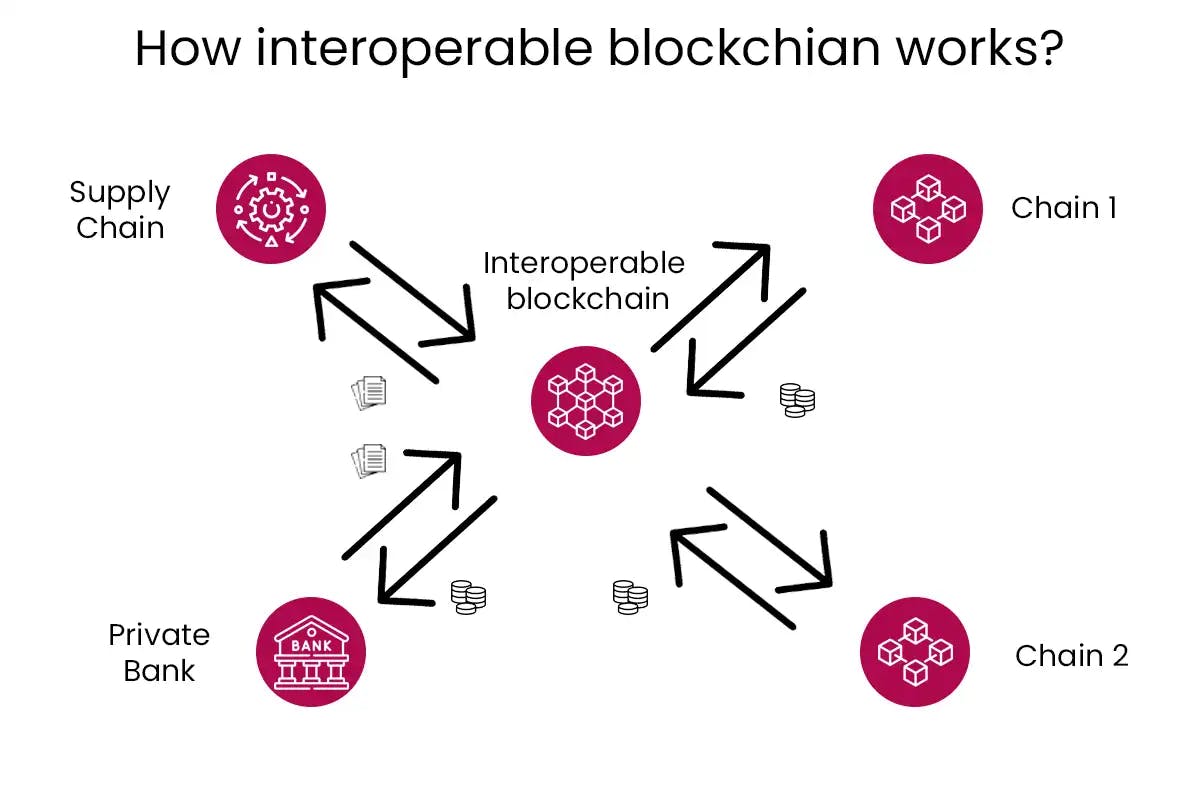
Benefits of Cross-Chain Smart Contracts
Cross-chain smart contracts allow smart contracts on one blockchain to interact with assets or data from other blockchains. The advantages of chain smart contracts are as follows;
- Enhanced Asset Liquidity
With chain compatibility assets like cryptocurrencies and tokens can be transferred across different blockchains providing greater liquidity and access to a wider range of assets. - Versatility in Use Cases
Cross-chain smart contracts expand the functionality of decentralized applications (DApps) by integrating with assets and data from blockchains. - Risk Mitigation
Distributing assets across blockchains reduces the risk of single-point failures or security breaches on a network enhancing the security and resilience of the overall ecosystem. - Improved Scalability
By offloading transactions to blockchains cross chain smart contracts can alleviate congestion and scalability issues on specific networks ensuring smooth operations. - Global Outreach
Cross-chain compatibility enables applications to have a reach by interacting with blockchain networks expanding the audience and user base, for decentralized services.
Real-world Applications of Cross-Chain Compatibility
Here are some real-world instances of cross-chain compatibility
Cross-Chain Decentralised Finance (DeFi)
Also known as decentralized finance platforms and applications, Cross-Chain DeFi has the capability to operate across multiple blockchain networks. DeFi platforms can benefit from cross-chain compatibility by accessing liquidity and assets from multiple blockchains, thus providing users with a wider range of financial services. Technologies like cross-chain communication protocols and blockchain bridges are used by Cross-Chain DeFi projects to achieve this connectivity.
Multi-Chain Non-Fungible Tokens (NFTs)
Cross-chain NFT marketplaces enable the creation and trading of unique digital assets usable in different virtual worlds, games, or applications. Non-Fungible Tokens can be easily exchanged across multiple blockchain networks and also can be used as interoperability solutions. Cross-chain NFT marketplaces can improve utility and value by enabling users to trade and display multi-chain Non-Fungible Tokens across different blockchain ecosystems.
Security and Privacy in Advanced Smart Contracts
Privacy and security should be taken as the main concerns for advanced smart contracts. These contacts are vulnerable to risks, which can be exploited so that they collect as well as save sensitive information. Advancing the smart contract sector entails using different approaches alongside cryptography; access control methods to enhance the privacy of smart contracts and methods of privacy preservation.
Tokenomics 2.0 in Practice and it’s Future
Tokenomics 2.0 has been implemented in several real-world cases, with one example being the Decentralized Finance (DeFi) ecosystem. In DeFi, smart contracts are utilized to automate various financial transactions. The gaming industry is leveraging blockchain technology to develop games that prioritize security, fairness, and transparency.
As tokenomics 2.0 continues to progress, the future appears promising. With ongoing advancements in technology, we can anticipate the emergence of increasingly innovative and sophisticated applications for smart contracts.
Tokenomics 2.0 is witnessing the rise of several new trends. These include the utilization of non-fungible tokens (NFTs), the establishment of decentralized autonomous organizations (DAOs), and the implementation of smart contracts for streamlining government services.
Challenges pertaining to Tokenomics 2.0
- Various Regulations
Navigating regulations surrounding tokens and cryptocurrencies is no easy task. Tax and classification policies vary across different countries, necessitating project adaptations to meet legal requirements. - Uncertainty in Classification
In many jurisdictions, the labeling of tokens as securities, utilities, or other assets is quite hazy. To prevent legal complications, there is a pressing need for regulatory directives that are more lucid. - Achieving Compliance and Reporting
KYC and AML regulations present a significant stumbling block for cryptocurrency-focused startups, necessitating a delicate equilibrium between regulatory compliance and user privacy. - International Transactions
Seamless international transactions can be hindered by regulatory obstacles in cross-border token transfers. It creates significant challenges for businesses and individuals trying to conduct international transactions, as sorting out these challenges needs compliance efforts, legal expertise, and knowledge of specific regulatory requirements of particular countries.
Considerations Pertaining to Tokenomics 2.0
- Ethical Uncertainties
The ethical implications surrounding the effect of blockchain networks on the environment are a prominent concern. The use of energy-intensive proof-of-work (PoW) consensus mechanisms accentuates this worry. - Token Distribution
Ensuring fair token distribution is crucial for projects that seek to prevent wealth centralization and the resulting inequalities. Ethically, project leaders must prioritize a balanced distribution of tokens to avoid the concentration of power, influence, and other related concerns. - Data Security
Maintaining transparency while safeguarding user privacy is a pressing ethical dilemma. To maintain transparency while protecting user data, token ecosystems must implement robust privacy safeguards.
Conclusion
The future has been changed forever with the advent of Tokenomics 2.0. Codiste, a leading company in custom blockchain app development, is poised to lead the way in shaping the future. With their expertise in advanced smart contracts and cross-chain compatibility, industries can experience groundbreaking transformations.
The effect of Tokenomics 2.0 on the worldwide economy is beyond measure as we move ahead. The global accessibility and fair distribution of financial services, ownership structures, and decision-making processes are now on the verge of a breakthrough and Codiste’s rock-solid reputation as a leading expert in blockchain app development makes them the driving force behind this spectacular transition.
Codiste’s Best Blockchain Team is a pioneering force in reimagining the relationship between technology, society, and business. Embracing Tokenomics 2.0 and incorporating ethical values, Codiste can shape a more promising future for multi-industry businesses.

